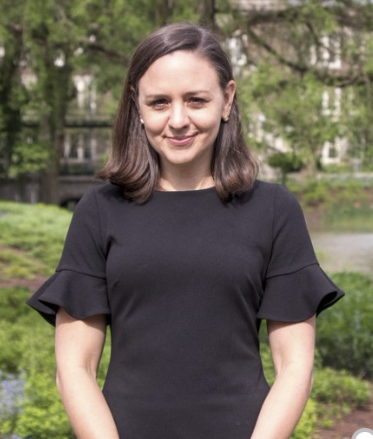 Patricia J. Zettler is a nationally recognized expert on food and drug law and policy. She serves as an associate professor at The Ohio State University Moritz College of Law, as a faculty member of the Drug Enforcement & Policy Center housed at the law school, and as a member of The Ohio State University Comprehensive Cancer Center. Professor Zettler’s teaching areas include torts, legislation and regulation, health law, the U.S. Food & Drug Administration (FDA), and drug policy.
Patricia J. Zettler is a nationally recognized expert on food and drug law and policy. She serves as an associate professor at The Ohio State University Moritz College of Law, as a faculty member of the Drug Enforcement & Policy Center housed at the law school, and as a member of The Ohio State University Comprehensive Cancer Center. Professor Zettler’s teaching areas include torts, legislation and regulation, health law, the U.S. Food & Drug Administration (FDA), and drug policy.
Professor Zettler’s scholarship has appeared in leading legal, interdisciplinary and medical journals, such as the Indiana Law Journal, Boston College Law Review, NYU Law Review Online, Food & Drug Law Journal, New England Journal of Medicine, JAMA, and Science, and she has covered various topics including non-trial preapproval access, citizen science, stem cell interventions, opioids, cannabis products, and tobacco and nicotine products. She also is a co-author of the forthcoming 5th edition of FOOD AND DRUG LAW: CASES AND MATERIALS (with Peter Barton Hutt, Richard A. Merrill, Lewis A. Grossman, Nathan Cortez and Erika Lietzan).
Before joining The Ohio State faculty, Professor Zettler was a faculty member of the Center for Law, Health & Society at Georgia State University College of Law. At Georgia State, she was selected as the 2018 winner of the Patricia T. Morgan Award for Outstanding Scholarship. Prior to Georgia State, she was a fellow at the Center for Law & the Biosciences at Stanford Law School.
In addition to Professor Zettler’s academic work, she served as an associate chief counsel in the FDA’s Office of the Chief Counsel, where she advised the FDA and the Department of Health & Human Services on a wide range of issues. Professor Zettler also has bioethics experience through work at the Program in Medical Ethics at the University of California San Francisco and at the Department of Bioethics at the National Institutes of Health.
Professor Zettler graduated with distinction from Stanford Law School, and she received a BA in psychology with distinction and departmental honors from Stanford University.